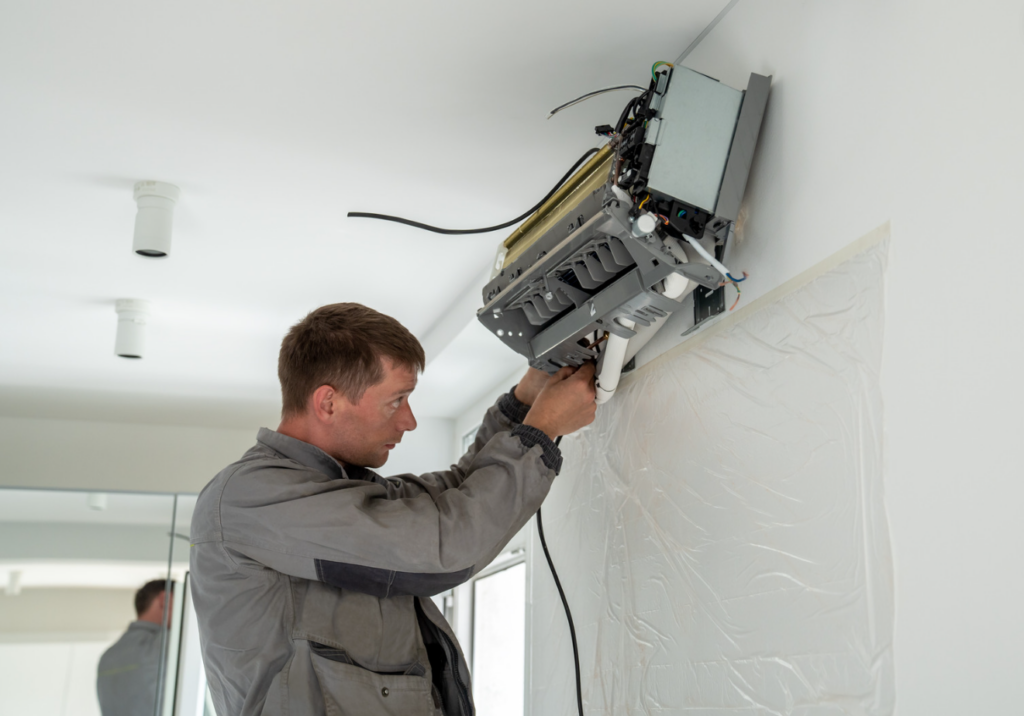Dive into the World of Airbnb Arbitrage: How To Successfully Get Started

When you buy something through one of the links on our site, we may earn an affiliate commission.
Are you interested in building a hospitality-based income stream? You may have thought of Airbnb as an option. But what if you don't have a spare room to rent out? Or don't have the resources to purchase and renovate a property for short-term rentals? This is where Airbnb arbitrage comes in.
This popular strategy allows individuals to rent properties from landlords at long-term rental prices and then sublet them on Airbnb for short-term stays.
You may say, "That sounds like a lot of work!" However, with the proper knowledge and research, Airbnb arbitrage can actually be a lucrative and relatively passive way to generate income.
So, let's discuss the basics of Airbnb arbitrage and provide you with helpful tips for getting started. Who knows, this could be your next side hustle or even turn into a full-time career.
Contents
What Exactly Is Airbnb Arbitrage?

Airbnb arbitrage, also called Airbnb rental arbitrage, is a business model that operates within the real estate and vacation rental market.
This model involves an individual or company renting a property from a landlord under a long-term lease agreement and then subletting that property on a short-term basis on platforms like Airbnb.
Essentially, the arbitrageur acts as a middleman who creates income by charging Airbnb guests more than what they're paying in rent to the landlord.
The difference between the rental income from Airbnb guests and the rental cost paid to the landlord is the profit made through this Airbnb rental arbitrage business.
Let's say you lease a property in one of the best cities for Airbnb, like Austin, Texas, for $2,000 per month. You then list that property on Airbnb and manage to rent it out for an average of $150 per night.
If you were able to rent it out for 20 nights in a month, you'd generate $3,000 in rental income. Subtract your original rent of $2,000, and you've just made a $1,000 profit in a single month!
Since Airbnb allows people to rent out creative spaces, you're not limited to renting an apartment or home as your rental arbitrage property. You can also arbitrage:
- Yurts
- Boats
- Treehouses
- Tiny homes
- Campsites
- Trailers and RVs
As you can see, Airbnb rental arbitrage is quite flexible and a great way for first-time Airbnb hosts to get started with the platform.
Renting properties is not without its risks, but with careful planning and execution, it can be a profitable venture.
Does Airbnb Allow Arbitrage?
If everyone agrees, starting an arbitraged short-term rental business is perfectly legal.
Still, it's crucial to understand that while Airbnb itself does not prohibit rental arbitrage in its terms of service, the local laws and regulations governing short-term rentals in your area might.
Here are the key points you need to consider:
- Consent From the Property Manager: You need to obtain explicit permission from your landlord or property manager before listing their property on Airbnb.
- Local City Regulations: Whether you're leasing an apartment or a condominium, it's essential to comply with the local city ordinances and local laws regulating vacation rentals. This may include obtaining permits, paying taxes, and adhering to safety standards. Non-compliance can result in legal fees, which could turn your lucrative business into a financial burden.
- Homeowners’ Association (HOA) Rules: If the property you're leasing is part of a homeowners' association, there may be additional rules limiting your ability to conduct Airbnb rental arbitrage. These rules can range from restrictions on short-term rentals to specific quiet hours and guest policies.
For more comprehensive information, you may need to review local government websites or consult with a legal professional.
Do You Need Money For Airbnb Arbitrage?

If you're trying to figure out how to make money from nothing, this method may not be right for you, at least right now. It does require a bit of money at the beginning.
But here's the cool part - compared to traditional real estate investing, where you need to buy a property outright (which can be a hefty sum), Airbnb arbitrage requires significantly less upfront capital.
Let's break this down. If you were to buy a property for, say, $300,000, you'd typically need to put down at least 20%, which is $60,000.
Then there are closing costs, maintenance, insurance, and taxes. It adds up quickly!
Now, let's look at Airbnb arbitrage. Instead of buying a property, you're essentially renting it from a landlord and then subleasing it on Airbnb. The costs you need to consider include:
- Lease Deposit: This is typically a month or two of rent. If your monthly rent is $2,000, you might need $4,000 upfront.
- Furniture and Decor: To attract guests, your place needs to look inviting. Depending on your taste and budget, this could range anywhere from $1,000 to $5,000.
- Initial Operating Expenses: These cover things like professional photos for your listing, cleaning supplies, and perhaps some reserve cash for unexpected repairs.
So, you might need anywhere from $5,000 to $10,000 to start an Airbnb arbitrage business. That's a lot less than the $60,000 you'd need if you were directly buying a rental property.
How To Get Started With an Airbnb Arbitrage Strategy
If you're still reading, then Airbnb rental arbitrage income must be tempting to you by now. So, let's discuss the steps you need to take to start your Airbnb arbitrage business.
1. Estimate Your Start Up Costs and Profit Goals

First things first - you'll need to get a budget going so that you know how much money you need to get started. You'll also want to get clear on how much you want to earn in monthly income from your Airbnb rental arbitrage business.
You'll want to think about:
- Upfront Costs: Starting an Airbnb arbitrage involves costs like the lease deposit (usually one or two month's rent), property furnishings, and initial operational expenses.
- Cash Flow: This is your net income after expenses. Positive cash flow is vital for profitability.
- Property Furnishings: Invest in quality furnishings to attract more guests and command higher prices.
- Liability Insurance: Protect yourself and your property from any potential damages.
- Operational Expenses: These include utilities, rental fees to online booking platforms like Airbnb, cleaning supplies, etc.
- Contingency Fund: Set aside some money for unexpected expenses or vacancies.
In short, careful planning, budgeting, and clear profit goals are crucial to starting a successful Airbnb rental arbitrage business.
Of course, you won't be able to get the numbers perfect at first, but a well-researched plan will help you stay on track and make adjustments along the way.
2. Research Popular Airbnb Locations

To maximize your income potential, you'll need to select a location that attracts tourists and business travelers. Some of the most popular tourist destinations in the US include:
- New York City
- Los Angeles
- Orlando
- Las Vegas
- Austin
- Chicago
- New Orleans
But don't limit your vacation rental business to urban areas if you're not located in one. Many suburbs and smaller towns also attract travelers looking for a unique experience as well as rural areas that are popular for outdoor activities or relaxing and soaking in nature.
Keep in mind that your Airbnb property doesn't have to be in the same location where you live. With a great property management team, you're able to take advantage of the Airbnb arbitrage market from anywhere in the world.
When finding your first property for Airbnb arbitrage, consider factors like its condition, size, and layout.
A well-maintained property requiring minimal repairs can save upfront costs. The size and layout should cater to your target market; families may prefer multiple rooms, while couples might opt for cozy studios.
Amenities such as a fully-equipped kitchen, reliable Wi-Fi, or an outdoor space can enhance guests' experiences and increase your property's appeal.
Also, think about accessibility and proximity to popular attractions when choosing a property.
3. Negotiate With a Landlord or Building Manager

Negotiation is crucial when securing a property for your Airbnb business. Without approval from the owner, you won't be able to run the Airbnb property legally. Here are some tips:
- Research: Understand the rental market and average prices in the area. This gives you a solid foundation for negotiation.
- Build Rapport: Establishing a positive relationship with the landlord or building manager can be advantageous. Be professional, respectful, and reliable.
- Present Your Proposal: Clearly explain your plan to use the property for Airbnb. Highlight benefits like regular maintenance, assured rent payment, and the potential for higher income.
- Negotiate Terms: Discuss the lease length, rent amount, and who covers maintenance costs. Aim for a win-win agreement.
- Get it in Writing: Once an agreement is reached, ensure all terms are clearly stated in the lease to avoid future misunderstandings.
Remember to be patient and persistent, as it may take some time to find the right rental arbitrage property and reach an agreement with the landlord or building manager.
However, once you secure your first property, it will become easier to expand your Airbnb arbitrage business in the future.
4. Set Up Your Space

Now that you've secured a space, here comes the fun part: decorating your Airbnb arbitrage project. Here are some tips to make your property stand out:
- Staging: Set up your space in a way that's visually appealing and functional for guests. This could include comfortable furniture, plenty of lighting, and decorative accents.
- Accommodate Your Target Market: Consider the type of guests you want to attract and cater to their needs. For example, business travelers may appreciate a desk and reliable Wi-Fi, while families will likely need additional beds or baby-friendly amenities.
- Invest in Quality Furnishings: As mentioned earlier, investing in high-quality furnishings can attract more guests and allow you to charge higher prices. Utilize your budget wisely and prioritize items that will make the biggest impact on your guests' experience, like a great bed.
- Add Personal Touches: Make your Airbnb property feel like a home away from home by adding personal touches such as artwork, books, or local recommendations for guests to enjoy.
- Create a Guide Book: A guide outlines important information about your property, amenities, and local area. This will make it easier for guests to navigate during their stay and also give them a sense of care and attention to detail from you as a host.
By setting up your space with care and attention, you can create a unique and memorable experience for your guests, leading to positive reviews and repeat bookings.
5. Set Up a Management Team

Setting up a management team for your Airbnb involves identifying your needs (cleaning, repairs, guest communication), searching for professionals in those fields, interviewing candidates, and setting clear expectations for your short-term rental arbitrage unit.
You can directly communicate with your management team or hire an assistant who fields all communication between all parties.
You can also find an all-inclusive property management company to handle all aspects of your Airbnb business for a fee.
6. Create Your Listing

Now that you've set up your rental arbitrage apartment unit, it's time to let the Airbnb community know that your vacation rental is available. Here are a few steps to follow for creating a successful listing:
- Professional Photos: Invest in high-quality photos to showcase your property in the best light. This will attract more guests and increase the chances of bookings.
- Detailed Description: Be honest and detailed in your description, highlighting all the features and amenities that make your property unique.
- Pricing Strategy: Set competitive prices based on market research of the nearby housing market and in alignment with local events such as festivals or conferences.
- Available Dates: Make sure to keep your calendar up-to-date and block out any dates when the property is not available.
- House Rules: Clearly state any rules or guidelines for guests, such as quiet hours, no smoking policies, or pet restrictions.
By creating a well-crafted listing, you can increase the visibility of your Airbnb rental arbitrage property and attract more potential guests.
7. Market, Promote, and Adjust Your Listing As Needed

Once your listing is live, it's time to market and promote your property to attract guests. Here are some tips:
- Utilize Social Media: Share your listing on social media platforms to reach a wider audience.
- Engage With Guests: Respond promptly to inquiries and stay in touch with previous guests for potential repeat bookings or positive reviews.
- Offer Special Deals: Consider offering discounts or special deals to attract more bookings, especially during slower seasons. Unfortunately, the Airbnb affiliate program has been retired, but you can offer creative alternatives.
- Monitor Your Performance: Keep track of your bookings and guest reviews to see if any adjustments need to be made in terms of pricing, amenities, or overall management strategy. A program like Hostify can help you manage your Airbnb arbitrage listings and track your progress.
Final Thoughts: Airbnb Arbitrage
Airbnb arbitrage can be a highly profitable business venture if done correctly. If you have a bit of cash to invest and want to learn how to make money fast in this industry, it's a low-risk, high-reward opportunity.
However, running vacation rentals may involve a steep learning curve. A comprehensive course can be a game-changer, significantly reducing the time it takes to grasp the intricacies of the rental arbitrage business model.
One excellent resource to consider is this Airbnb course on Udemy. It provides an in-depth look into the world of Airbnb arbitrage, guiding you through every step of the process, from finding the right property to creating compelling listings.
By leveraging such resources, you can fast-track your journey to becoming a successful Airbnb host with consistent vacation rental income.
Want to learn step-by-step how I built my Niche Site Empire up to a full-time income?
Yes! I Love to Learn
Learn How I Built My Niche Site Empire to a Full-time Income
- How to Pick the Right Keywords at the START, and avoid the losers
- How to Scale and Outsource 90% of the Work, Allowing Your Empire to GROW Without You
- How to Build a Site That Gets REAL TRAFFIC FROM GOOGLE (every. single. day.)
- Subscribe to the Niche Pursuits Newsletter delivered with value 3X per week
My top recommendations

















